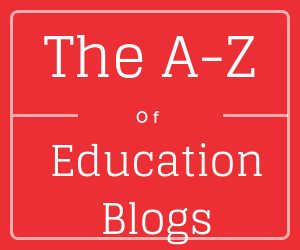Pass or Fail: The Economic Cost of Social Promotion and Retention

In this multi-part series, I provide a dissection of the phenomenon of retention and social promotion. Also, I describe the many different methods that would improve student instruction in classrooms and eliminate the need for retention and social promotion if combined effectively.
While reading this series, periodically ask yourself this question: Why are educators, parents and the American public complicit in a practice that does demonstrable harm to children and the competitive future of the country?
Repeating a grade is not that big of a deal, right? Think again! Both social promotion and retention has negative impact on the American economy and social services.
Grade repeaters are more likely to be on public assistance programs, unemployed, or imprisoned. Assessing family income for recent high school dropouts versus recent high school graduates, and looking in particular at households where students were still living at home, the median income for families of dropouts was $12,100, and the median for families of recent high school graduates was $22,700. For college-enrolled high school graduates, the median family income was $34,200.
Although these elements are not to be regarded as causal – low-income families causing dropouts or the need for retention or social promotion – these factors and statistics suggest that large numbers of dropouts come from single-parent households and households run by women. They indicate the social fallout of the education policy. That is, the current system cannot support at-risk students from families where there are challenges in addition to education.
Students who are retained or socially promoted tend to rely more heavily on social services. They usually earn less over the course of their lifetime than those who are not retained or socially promoted. The considerable long-term costs mean society must continue supporting affected students, rather than education serving its purpose and enabling individuals to be self-sufficient. Indeed, a study which examined the NCLB act, warned of a dropout crisis in the United States. The study determined that, every September, approximately 3.5 million young people in America are seen to enter the eighth grade, with roughly 505,000 of this number dropping out over the next four year, an average of more than 2,805 per day of the school year.
Individuals who drop out of school earn approximately $270,000 less than high school graduates over the course of working lives. Having a high school diploma rather than a skills assessment based on a minimum competency test, also helps to determine whether a person can obtain employment and how much money he or she stands to earn. In 1997, the employment rate of men in the twenty-five to thirty-four-year-old range who did not graduate high school was more than twice that of men who did graduate. Among women within that same age-range, the unemployment rate of those without diplomas was three times higher than those with diplomas.
Retention and social promotion policies tend to impact minority students disproportionately, as they are more likely to be retained or socially promoted and drop out of school. Policies of retention and social promotion potentially contribute to racial disparities. The same appears true for low-income families. Although the correlation between retention and social promotion and low-income families is not perhaps as definitive as the link between minorities and these policies, there is still an apparent link and basis for suggesting that there is a connection to poverty and both retention and social promotion policies.
The 21st century, however, is not the age of overt prejudices or even necessarily direct and transparent racial, social, or economic discrimination. The disparities that exist, some of which may be growing more extreme, remain rather well concealed. In structured systems like education, they often go unaddressed until the situation requires affirmative action. The obvious example with education is that the discrimination against a minority or impoverished student, or even one with a learning disability, occurs from the first day they enter the education system and carries on throughout their career.
Indeed, the discrimination remains in effect, largely unnoticed and undetected, until the affected individual is so severely impacted that he or she is unable to demonstrate appropriate understanding of materials that have been the emphasis of their curriculum for a year. There are also secondary costs related to the lack of academic achievement, which includes the individual’s lost interest in school and decreased potential to excel in a variety of areas not requiring demonstration of academic achievement.
Some quantitative assessment of performance of students, as well as educators, administrators, and schools, will always be necessary, and solutions will not be easy to develop or enact. The alternative strategies are complex and require flexible implementation to overcome the subtlety and variety of prejudices that exist. However, the potential of growing costs and the expansion of those costs justifies the efforts.
With the figures at hand, how can anyone suggest social promotion and retention positively impact our economy and society at large?






